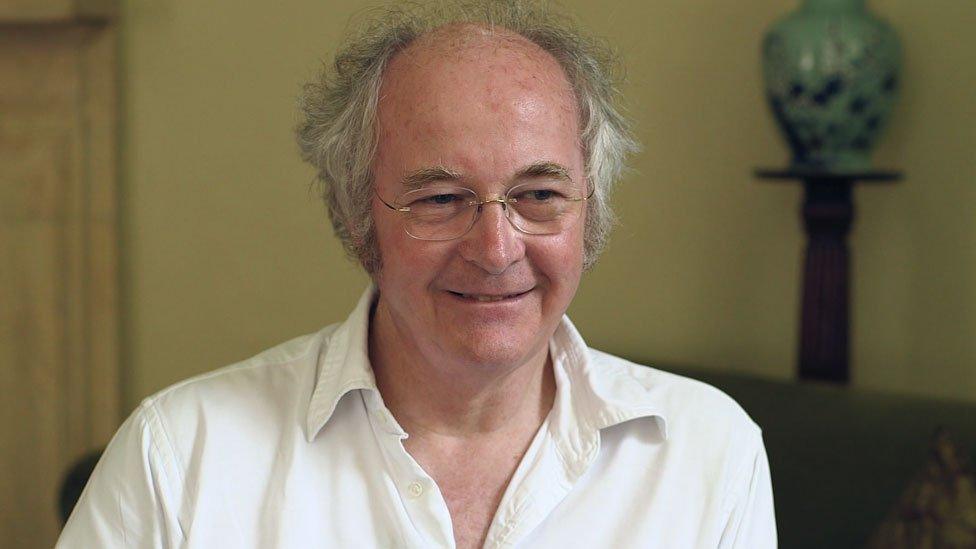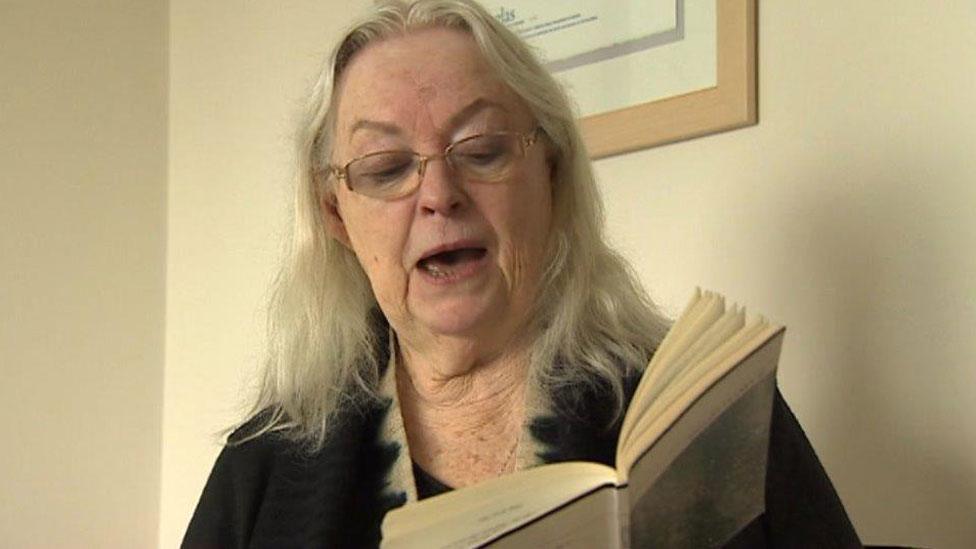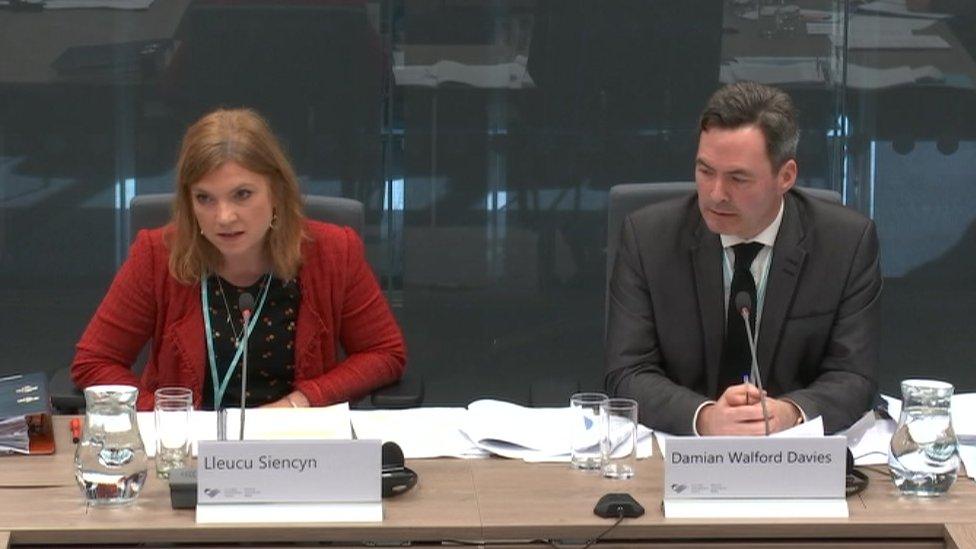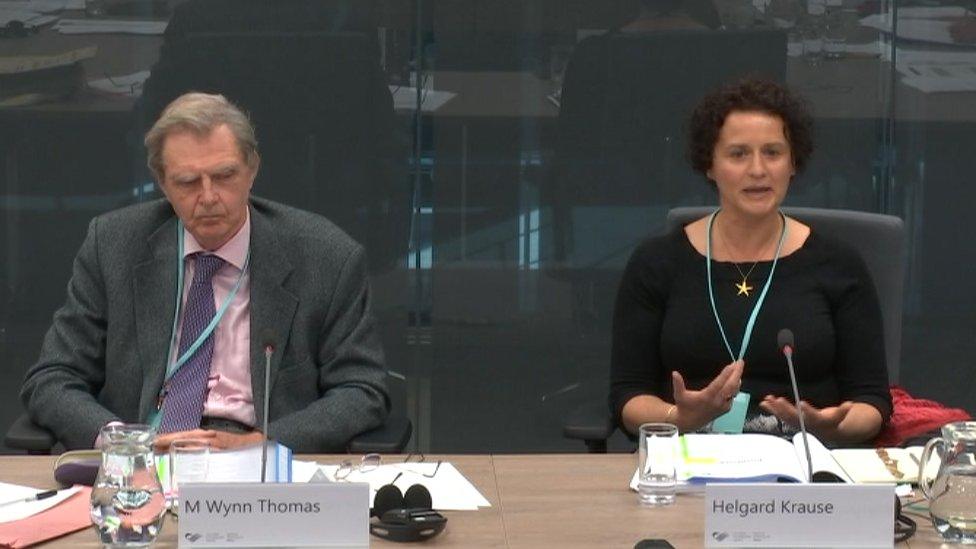Author Philip Pullman: Literature Wales cut 'perverse'
- Published

Philip Pullman is a patron of Literature Wales
Author Philip Pullman has said planned cuts to a quango that promotes reading and writing are "perverse".
Economy Secretary Ken Skates announced in June that he wanted to withdraw funds and several responsibilities from Literature Wales (LW).
It followed a damning report for Welsh ministers which said LW "seemed uncertain as to its proper purpose".
Ministers said they would be "working closely with all of the key stakeholders as we move forward".
In a letter to AMs, Pullman, a patron of LW, said he had "misgivings" about the review and that proposals to slim down LW's role were "little short of perverse".

Gillian Clarke said she was "shocked" by the contents of the review
Gillian Clarke, former national poet of Wales, said she was "shocked" by the contents of the review, led by university vice chancellor Prof Medwin Hughes.
Formed in 2011, LW has an annual budget of more than £1m, including a grant last year of £717,000 from the Welsh Government via the Arts Council of Wales.
Under Mr Skates's plans, many of its duties will be handed to the Welsh Books Council.
Mr Skates told the heads of LW and other arts bodies in July that he would listen to their concerns about the "accuracy, scope, impartiality and strategic effectiveness" of the Hughes report before making a final decision.
'Inflammatory comments'
On Wednesday, LW chairman Prof Damian Walford Davies told the assembly's culture committee that the organisation had suffered "significant reputational damage" following publication of the disputed Welsh government report.
But he added that LW remained "a very robust and connected institution".

Lleucu Siencyn and Damian Walford Davies said Literature Wales had been damaged by the critical report
Chief executive Lleucu Siencyn said she too was alarmed by the report, saying: "The level and depth of inflammatory comments about Literature Wales within this particular work is absolutely shocking."
She added: "When this report came out we were in conversation with a very significant potential commercial sponsor for Book of the Year, but those meetings weren't advanced."
Pressed on the report's conclusions, Prof Davies said it "fetishises an outdated, frankly medieval, model of literature which is based on the end product, which is the published book".
He added: "It pays lip service, merely, to the digital. But Literature Wales is interested in the multifarious forms of literary activity and of writing more generally."
However, Welsh Books Council chairman Prof M Wynn Thomas told the committee that his organisation "had a perfectly favourable experience when meeting the review panel," and that the process "was unsparingly thorough".
He said the Book of the Year awards had "struggled" in recent years under Literature Wales's management, and that there was general dissatisfaction with how the event was run.
Prof Thomas said the Welsh Books Council "does not want to take that over" at the risk of "perpetuating the dissatisfaction," but would take on the challenge if the recommendation was implemented.

Prof M Wynn Thomas and Helgard Krause of the Welsh Books Council give evidence
The council's chief executive Helgard Krause was more measured, saying she was confident her staff had the skills to deliver whatever they were handed - including the Book of the Year awards.
The review had been critical of the Welsh Books Council's digital operations, and questioned whether its management and trustees were prepared to take necessary risks.
Ms Krause, who was appointed in October 2016 and took up the post in February, said the review's criticisms were mostly fair, but said some of the submissions made to the review had been "downright bonkers".
A Welsh Government spokesman said its formal response would be follow after the panel had considered comments received about its report.
"There is much work to be done to implement the vision for even better support for publishing and literature that we all aspire to," he said.
"The Welsh Government looks forward to working closely with all of the key stakeholders as we move forward."
- Published14 June 2017

- Published6 July 2017

- Published13 July 2017
